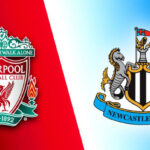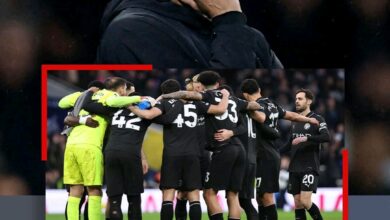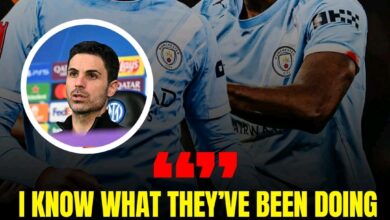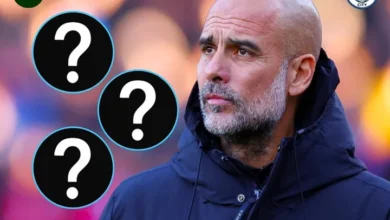Ange Postecoglou now told his £25m Tottenham Hotspur player is becoming a real ‘leader’

The international break, while providing players with the opportunity to compete for their national teams, often arrives at a challenging time for club managers. For Ange Postecoglou, the manager of Tottenham Hotspur, this break comes after a frustrating 2-1 defeat to Newcastle United. The loss was particularly disheartening given Tottenham’s dominance throughout the match, only to be undone by a late goal. Such a result emphasizes the disjunction between the promising performances and the tangible outcomes of the season thus far.
The timing of the international break—following only three Premier League fixtures—poses additional challenges. The early stages of the season are crucial for setting the tone and establishing momentum, and an interruption such as this can disrupt a team’s rhythm. Postecoglou, who might have preferred to address the team’s shortcomings and work on tactical improvements in the wake of the Newcastle defeat, now finds himself in a position where he must observe from afar and await updates on his players’ conditions.
Among the Tottenham players who have departed for international duty, Dejan Kulusevski’s situation is particularly noteworthy. Kulusevski, the Swedish winger who joined Tottenham in a high-profile £25 million transfer, has been making headlines not just for his club performances but also for his role on the international stage.
Kulusevski’s selection as captain for Sweden’s upcoming matches against Azerbaijan and Estonia marks a significant milestone in his career. Although he has accumulated 39 caps for Sweden by the age of 24, this is his first time assuming the captaincy role. The absence of regular captain Victor Lindelof has provided Kulusevski with an opportunity to lead the Swedish team.
This leadership role is not entirely surprising, given Kulusevski’s recent performances and his growing influence within the Sweden squad. His ascent to the captaincy reflects a broader recognition of his leadership qualities. Kulusevski has been praised by his teammates, including Sweden left-back Ludwig Augustinsson, who has highlighted the winger’s natural leadership attributes. Augustinsson’s remarks underscore Kulusevski’s role as a motivating force within the team, both on and off the pitch. Augustinsson describes Kulusevski as a proactive and inspiring presence, whose leadership is characterized by a drive to push the team forward and an increasing openness in his interactions with teammates.
Despite his commendable performances and leadership role at the international level, Kulusevski’s role at Tottenham remains somewhat ambiguous. His acquisition as a right winger was intended to bolster the team’s attacking options. However, Kulusevski’s playing style—marked by creativity and technical skill rather than raw pace—presents a challenge within Ange Postecoglou’s tactical framework.
Postecoglou, known for his preference for dynamic and pacey wingers, may find Kulusevski’s attributes less fitting for his tactical preferences. The manager’s recent acquisitions, including Brennan Johnson, Timo Werner, and Wilson Odobert, reflect a clear emphasis on speed and athleticism on the flanks. Kulusevski’s lack of explosive pace has led to considerations of alternative roles for him within the tea
Kulusevski’s adaptability has been tested under Postecoglou’s management. The Swedish winger has been utilized in various roles, including as an attacking midfielder and, occasionally, as a false nine during pre-season. While Kulusevski demonstrated potential in these roles, the arrival of Dominic Solanke, a dedicated forward, has somewhat diminished his prospects in the latter position.
The challenge for Postecoglou lies in integrating Kulusevski effectively into his tactical plans. The manager’s preference for pace on the wings and the presence of other attacking options complicate Kulusevski’s role. While he possesses undeniable quality and technical prowess, his long-term position at Tottenham remains uncertain. Postecoglou must navigate these dynamics carefully to maximize Kulusevski’s contributions while aligning with the team’s overall tactical objectives.
Kulusevski’s development as a player and leader continues to evolve. His experiences with Sweden and at Tottenham are contributing to his growth both on and off the pitch. The international break presents an opportunity for him to further refine his leadership skills and gain additional experience. For Tottenham, the challenge will be to find the optimal role for Kulusevski that leverages his strengths while accommodating the tactical preferences of Postecoglou.
As Tottenham Hotspur navigates the international break, the evolving role of Dejan Kulusevski offers both opportunities and challenges. Kulusevski’s appointment as captain for Sweden underscores his growing influence and leadership capabilities, which are increasingly recognized at the international level. However, his role within Tottenham remains complex, given the tactical preferences of Postecoglou and the competition for positions in the squad.
The period following the international break will be crucial for Tottenham as they prepare for key fixtures, including the North London Derby against Arsenal. The integration of Kulusevski and the management of player roles will play a significant part in shaping the team’s performance in the coming weeks. For Postecoglou, the task will be to balance the contributions of his players, including Kulusevski, to achieve the desired outcomes and maintain momentum in the Premier League.
In summary, while Kulusevski’s leadership and skillset are acknowledged and celebrated, his role at Tottenham requires ongoing strategic consideration. The interplay between his international success and domestic responsibilities will be pivotal in determining his future impact on the team. As Tottenham continues to adapt and evolve, Kulusevski’s journey will be a key storyline to watch, both for his development as a player and his contributions to the team’s success.















